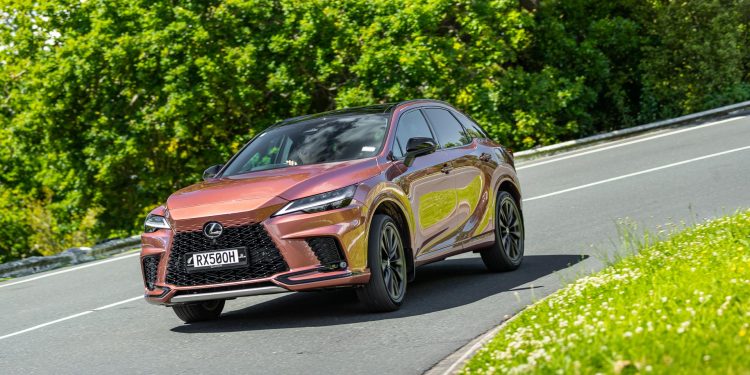2023 Lexus RX 500h F Sport review
Words: Kyle Cassidy | Photos: Isaac Western
The Lexus RX returns in fifth-generation guise, now with an F Sport model boasting more power. And it’s a hybrid. Does it ring our bell?
Lexus is big on electrification, more than 80 per cent of sales here having a motor. These are hybrids in the main, as all-electric models are limited to a version of the Lexus UX (recently upgraded with a larger battery pack) and the new Lexus RZ, though supply of that is limited.
But generational improvements of the hybrid system have seen it evolve into a likeable powertrain given it’s refined, easy going and doesn’t burn that much gas.
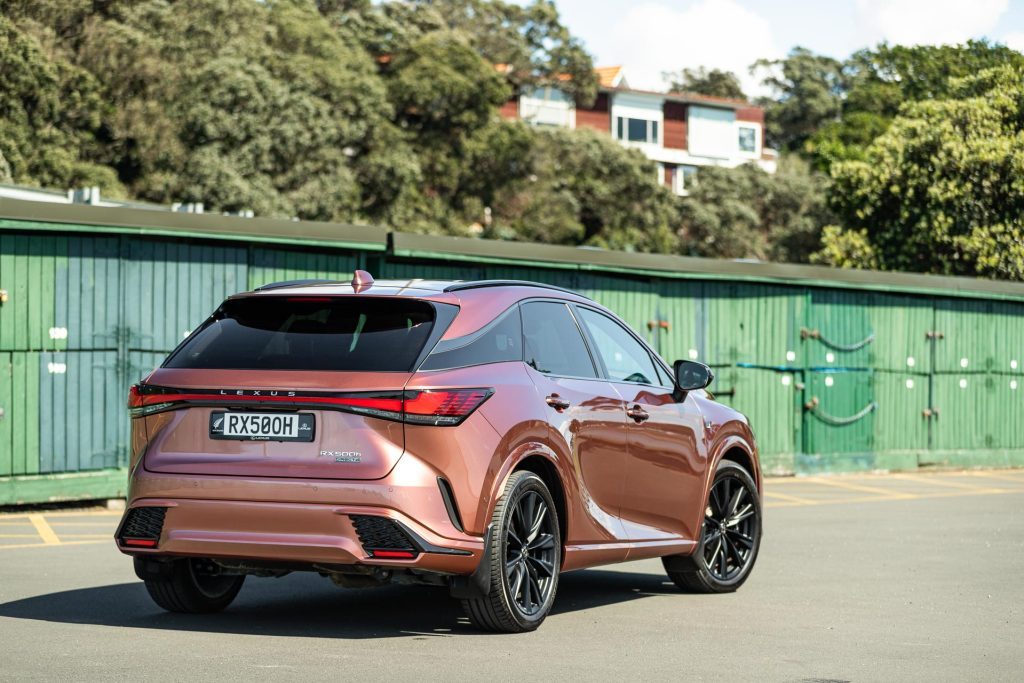
The RX line-up is now all hybrid, although there are two distinct flavours, the 350h and the 500h.
The range starts at $124,600 (all models are now around $4000 more expensive than when they launched earlier in 2023) for the Premium, the Limited at $135,800 (or $140k with the Enhancement Pack) while the 500h asks $149,800.
The 500 also adds ‘F Sport Performance’ to its nameplate, giving you an idea of its intentions.
The 350h uses a familiar hybrid set-up featuring a 2.5-litre four cylinder running on the lean burning Atkinson cycle and making 140kW and 239Nm.
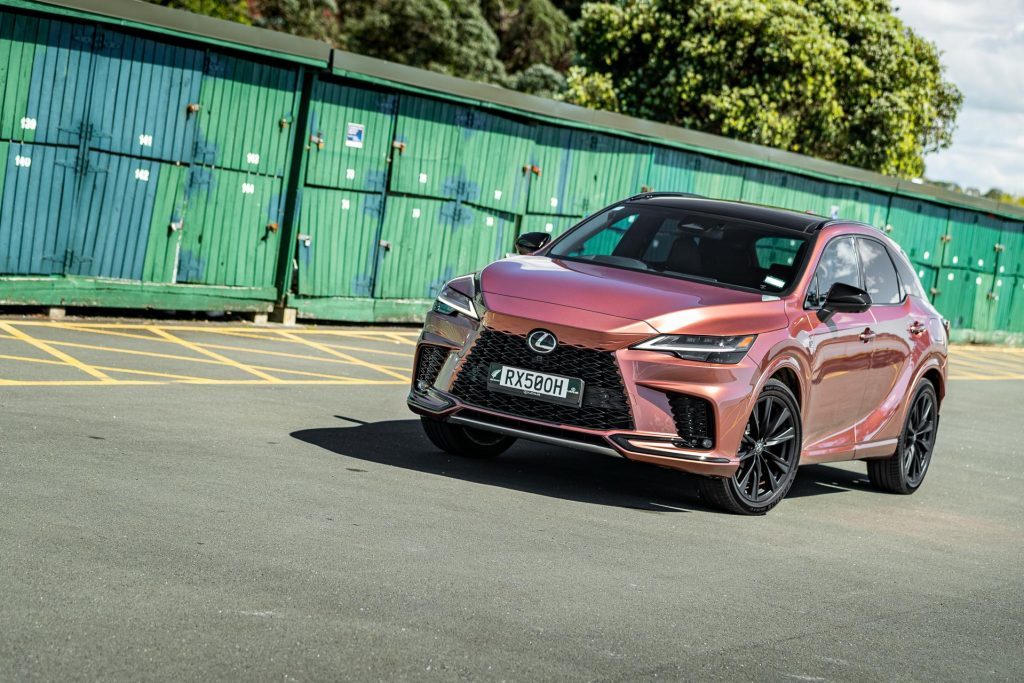
It’s matched with a 134kW/270Nm motor up front, and a 40kW/121Nm unit at the rear for AWD capabilities. Utilising the usual e-CVT transmission the total system power output is 184kW, and it is said to return a figure of 6.0L/100km with CO2 emissions of 137g/km.
The 500h is something a bit different. It gets a turbocharged 2.4-litre four making a healthy 202kW and 460Nm. It also differs in its use of a six-speed automatic, while it has a 64kW/292Nm motor up front with a 75kW/168Nm unit on the rear.
Altogether they combine for a total of 273kW. The 500h uses more fuel as a result, 7.2L/100km and 165g/km, but it’s quicker down the motorway onramp, hitting 100km/h in 6.2sec versus 7.9sec for the 350.
While both models are AWD by virtue of the motor on the rear axle (no need for a driveshaft then) the 500h gets the Direct4 traction control management derived from Toyota’s EVs to better ground the power.
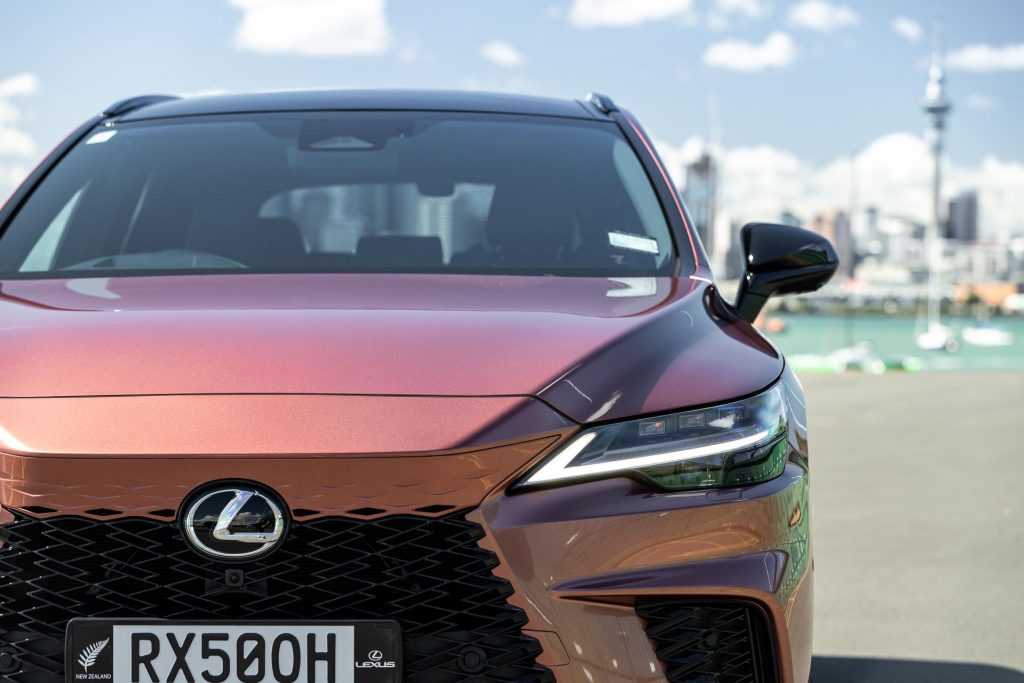
It has a more active role in the deployment of the torque via each axle depending on the need. It also gets adaptive F Sport dampers, bigger brakes and rear-wheel steering.
This is said to aid stability in the faster turns while the feature you’ll enjoy more is a reduced turning circle in the carpark, down to 11m versus 11.8m for the 350h.
A hybrid but different
While the 500h is a hybrid, it’s a bit different from the usual Toyota fare to drive. There’s plenty of torque ready from the get go, so this feels strong off the mark, and the auto, complete with genuine shifts, makes it feel more like a conventional petrol powertrain.
It’s more responsive, the connection between throttle inputs and acceleration more consistent. The engine does shut down when it can (off at the lights and when cruising under light loads and slow speeds) but it’s in use more often than not.
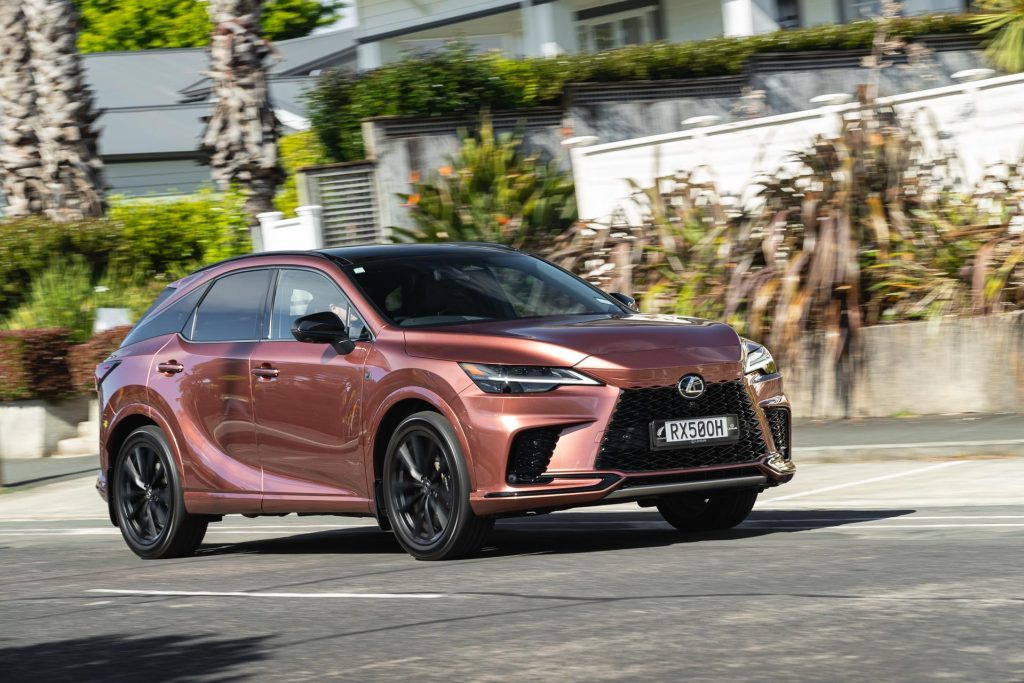
Unlike other hybrids from this maker, there is no EV mode button. It’s more of a performance hybrid than an eco-minded one. Keep the throttle pinned, and it shows a decent turn of pace, while a fake rumbling noise can be heard as engine speeds rise, trying to emulate the growl of a large capacity six perhaps?
While there is a plug-in hybrid version of the RX, this is not that, for it’s of the ‘self charging’ variety, using an NiMH battery sited under the rear seat to power the electric motors.
As to fuel use on test, consumption was in the 10L/100km area marauding around town, the average sinking into the high eights after an extended run down country on the highway.
So not the most economical hybrid then but it has plenty of go, despite its near 2.2 tonne mass. That’s also close to its max tow rating, being 2000kg braked.
Tooling about, you rarely need to go hunting for the torque as it hauls away briskly when needed, and the engine is calm and quiet in its lower rev range.
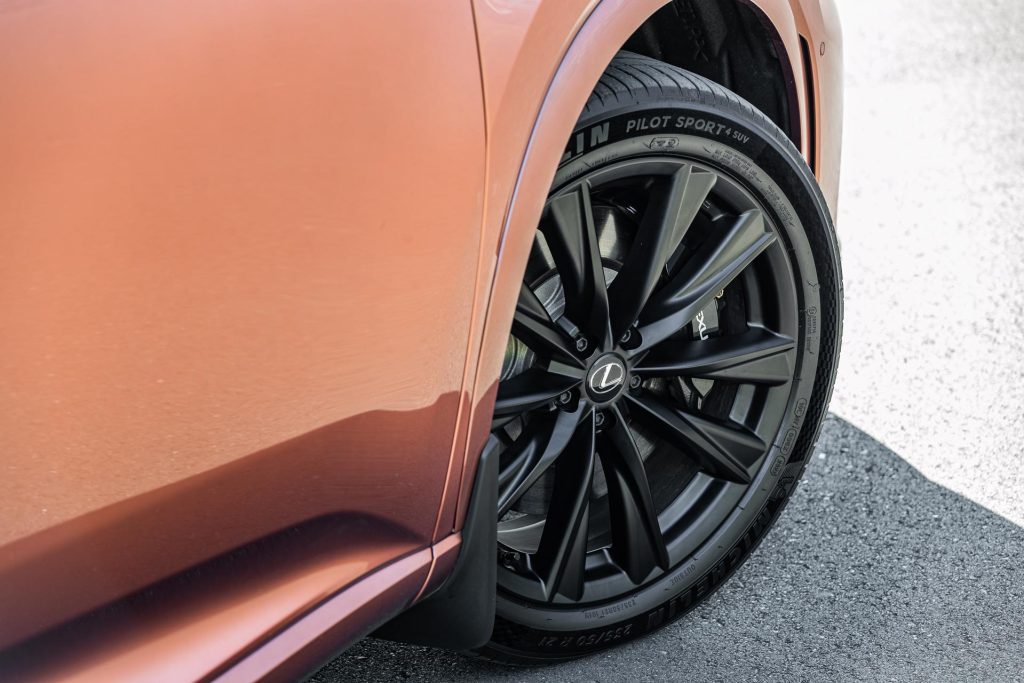
The ride quality is okay, not the plushest ever but it’s the F Sport after all, riding on 21s.
Thanks to the rear-wheel steer, the turning circle is manageable and the surround view camera helps with docking, and keeping the 21s scratch free.
Sporty but?
The RX has never been the sporty one amongst luxury SUVs, and though this 500h wears the F Sport badge, it isn’t either. It’s quick (enough) and competent, yes, but it won’t engage a keen driver.
The steering is consistent and accurate but the connection isn’t strong.
It does turn okay, perhaps the rear-wheel steering helping there, but the weight is ever present and understeer threatens as the electronics sort things in the background.
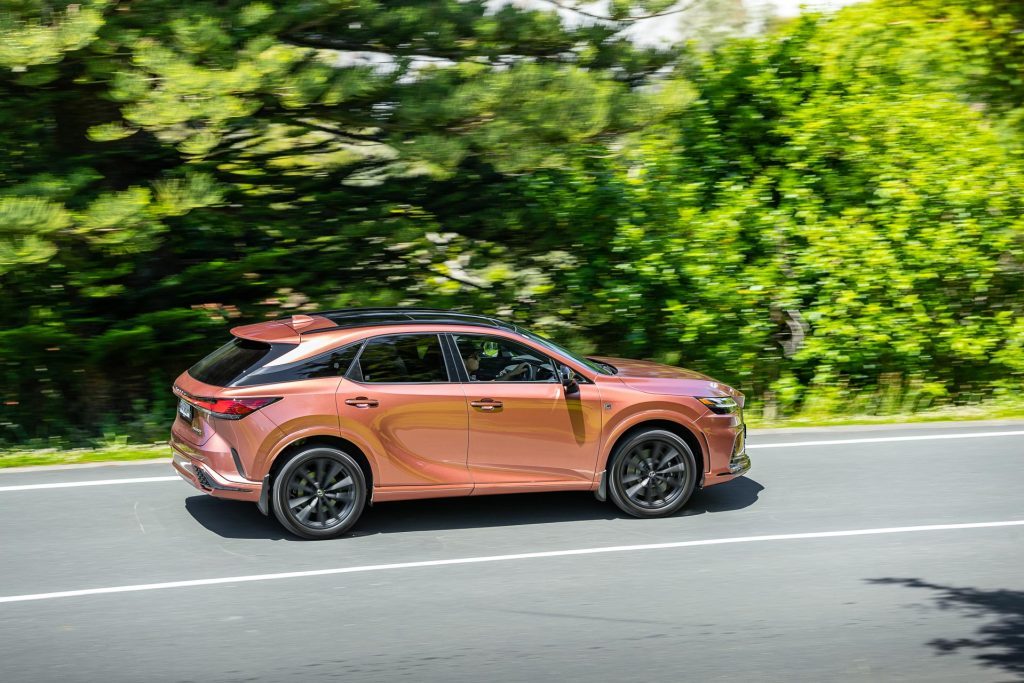
The adaptive dampers keep the roll in check and ride harshness at bay, though progress is smoother in the Normal setting.
In its Sport mode, the engine is more willing to wind out to 6000rpm, but with just six gears in the box, it then falls back below 4000rpm when the next cog is selected.
There are shift paddles, but there’s a palpable delay between flapping the lever and getting the gear. The brakes have decent arresting power but the pedal action is wanting.
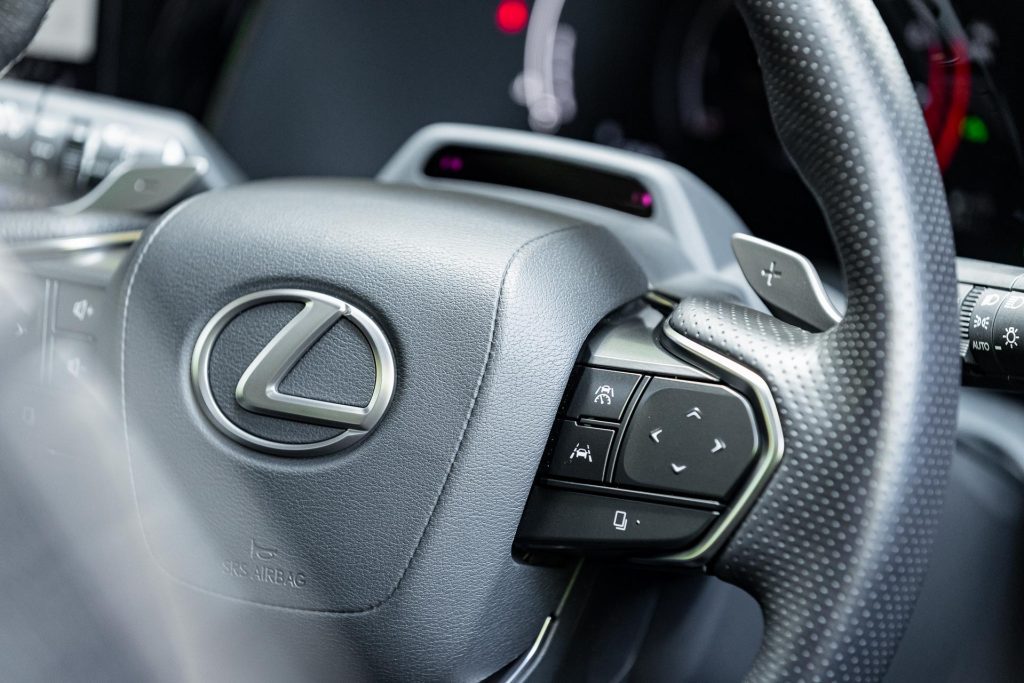
Calm and safe inside
The RX provides a calm cabin to commute in with plenty of soft surfaces. Now that Lexus has got rid of its mishmash of buttons and displays, its cabins look more cohesive.
Gone is the awful track pad, the big touchscreen easier to navigate through, and well positioned, quick acting and vibrant. Good too that the ventilation has its own place on the lower part of the screen.
The seats, being F Sport items, are a little restrictive in the bolstering but otherwise comfortable. And most things are power adjustable and heated, with plenty of charging options (multiple USB-C outlets and a pad).
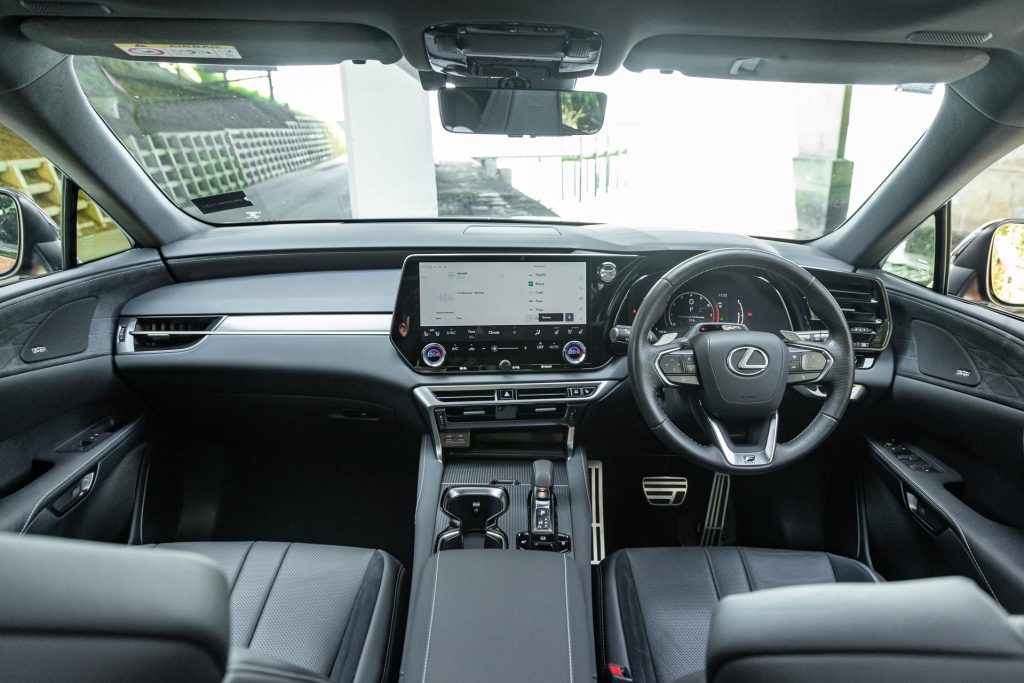
We like the easy-to-use door openers; thumb the release button and push the door open in one fluid movement.
It’s not a hulking big SUV this RX, but fit for the family. The rear quarters offer plenty of legroom, the back seats accommodating three kids or two adults in comfort with more bun warmers and charge plugs here too.
The hold is decent at 612L expanding when needed out to 1678L.
The RX is another new car with an active driver monitor, a little sentry sitting on the steering column keeping vigil. It’s quick to let you know when your attention isn’t where it should be, so it’s doing its job, and while the alert isn’t too annoying, some might find it bothersome.
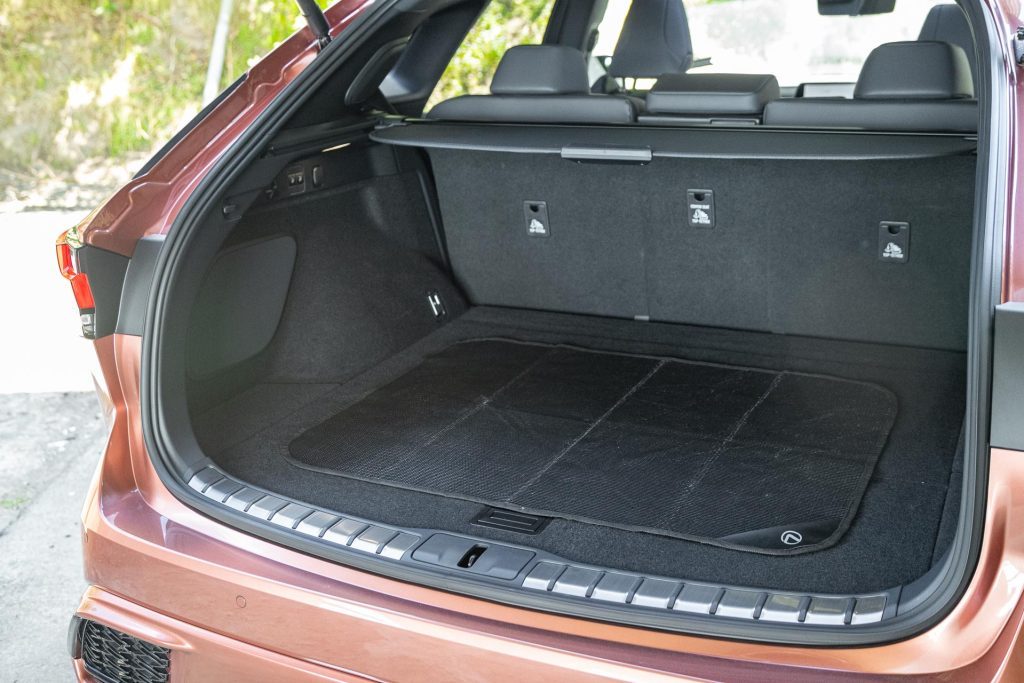
While the lane keeping can get a bit bossy on winding roads, it can also be switched out if it annoys. An auto brake function will ram the stoppers on if it thinks you’re about to back into something, and this also works when it detects things alongside you.
This could prove handy in tight spaces. It’s just a pity that it can’t differentiate between harmless foliage and a fence.
While haptic touch buttons on a steering wheel can be triggering for some folk, this RX has a block of switches that at first seem baffling. But if you lightly touch them, their functions show in the head up display, and these you use to set the active cruise.
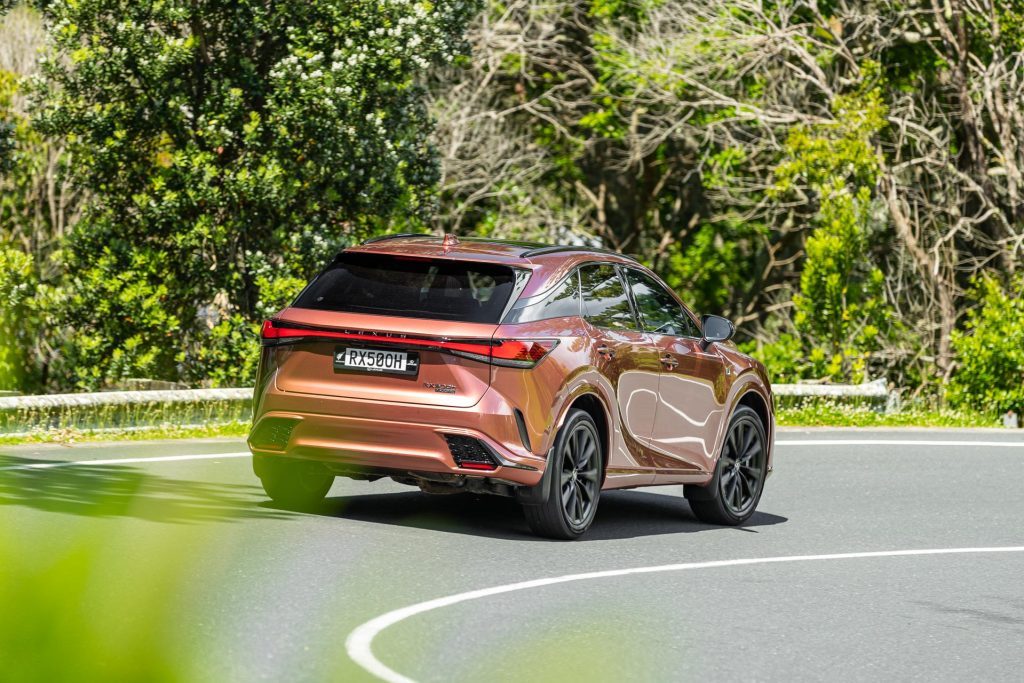
But, as they are configurable, you can also use the same buttons to change the drive modes. Quite trick once you know how, but no doubt some would label such nonsense overly complex.
And the active cruise is always helpful, complete with lane tracing for motorway use, though it can leave too big a gap to the car in front (even on the closest setting) which people feel obliged to fill during rush hour.
So should you?
If you like effortless power balanced with a nod to efficiency, and love the F Sport look, sure.
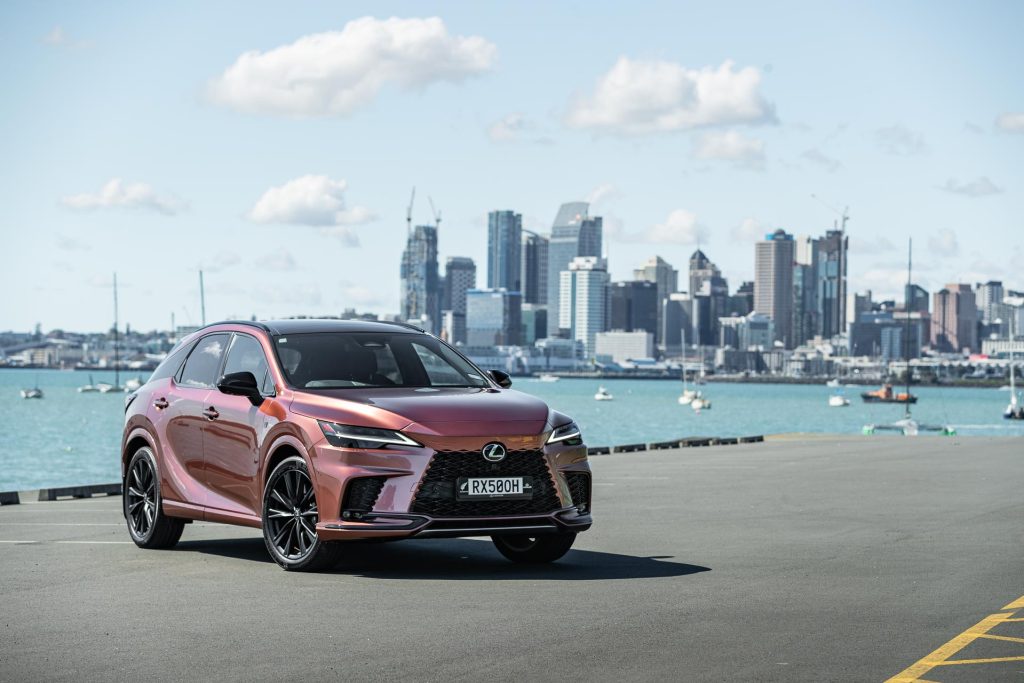
It will drive well enough for most folk, though more engaging luxury sports UVs can be had. Perhaps try the 350h first – it may fulfil the need.
And remember the big Lexus aftersales service includes four years of cover.
| Model | Lexus RX 500h F Sport Performance |
| Price | $149,800 |
| Engine | 2.393cc, IL4, T, DI |
| Max power | 202kW @ 6000rpm |
| Max torque | 460Nm @ 2000-3000rpm |
| Motor output | f-64kW/292Nm / r-75kW/168Nm |
| Hybrid system output | 273kW |
| Drivetrain | 6-speed auto, e-AWD |
| Fuel Use | 7.2L/100km |
| C02 Output | 165g/km |
| 0-100km/h | 6.21 sec |
| Tyre Size | f/r-235/50/R21 |
| Fuel Capacity | 65L |
| Stability systems | ABS, ESP, TV |
| Safety | AEB, ACC, BSM, LDW, RCTA, ALK, AHB |
| Luggage Capacity | 612/1678L |
| Tow rating | 750kg |
| Scheduled servicing | 4 years / unlimited km |
| Warranty | 4 years / unlimited km |
| ANCAP rating | 5 Stars (2023) |
| Weight | 2,160kg |
This article first appeared in the December/January issue of NZ Autocar Magazine.


